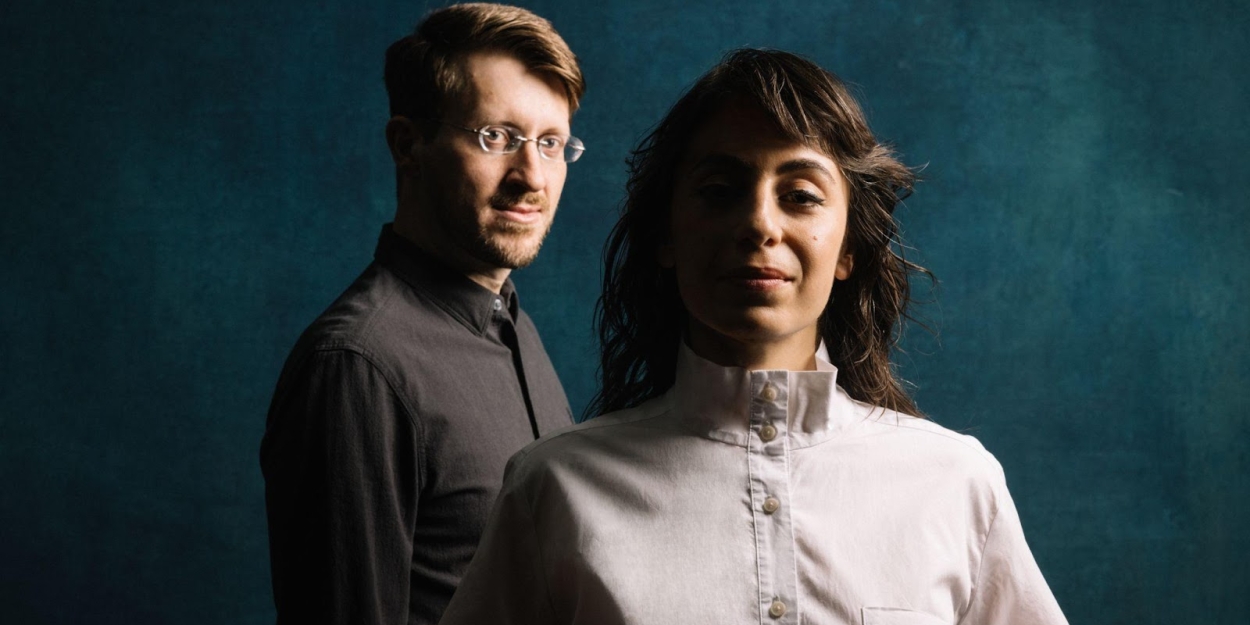Cantori NY to Present The World Premiere Of Karen Ouzounian & Lembit Beecher's DEAR MOUNTAINS
The performances will take place on Friday, November 22, 2024 and Saturday, November 23, 2024.

On Friday, November 22, 2024 and Saturday, November 23, 2024, the world premiere of Lembit Beecher and Karen Ouzounian's co-composed new work, DEAR MOUNTAINS, opens Cantori New York's 40th Season. Commissioned by Cantori New York and conducted by Mark Shapiro, the piece features performances by Karen Ouzounian, cello, Ara Dinkjian, oud, and Philip Mayer, percussion. Though Ouzounian and Beecher have collaborated extensively previously, DEAR MOUNTAINS is the first piece the two have written together. This 35-minute new work for choir, solo cello, oud, and percussion combines a 100-year-old story from Ouzounian's Armenian family's history with Armenian folk songs and liturgy and contemporary, imagined dances of a lost and distant Anatolian homeland. Drawing from disparate archival sources-carefully transcribed documentary recordings, prose descriptions, and personal memories-the piece imagines moments of music-making and listening occurring across the Armenian diaspora (in Beirut, Toronto, Fresno, Boston, and New York) over the last century in the wake of the Genocide, juxtaposing these scenes with a story often retold by Ouzounian's grandmother. Exploring the fuzzy lines between documentary, memory, and imagination, the piece reflects on the fragmented ways in which diasporic communities are able to understand the past, simultaneously holding the worlds of the past and present, of grief and joy together in rebuilding their communities and futures.
Among the musical archives evoked is a 1917 recording of an Anatolian Armenian song called Eghin Havasi, recorded by Kemany Minas and Harry Hasekian in New York City for Columbia Records and painstakingly transcribed by Ouzounian and Beecher. In the 1993 issue of the quarterly magazine Ararat, Ouzounian and Beecher found a deeply moving description of Armenian immigrants gathering in Van Cortlandt Park in the 1920s after the Genocide, listening to this recording and dancing away their grief. "One of the movements, 'Listening to Eghin Havasi in Van Cortlandt Park, New York (1920s)' becomes an evocation of this scene. These days, the two of us take the 1 train up from Northern Manhattan and run in Van Cortlandt Park from time to time; we love its wide open grassy expanses and wild trails, an escape from urban New York City. Imagining this recording being played in those same spaces 100 years ago feels sharply poignant," Beecher says.
The work also draws on Sidney Robertson Cowell's 1939 field recordings for the Library of Congress of Armenian musicians in Fresno, CA, setting her spoken descriptions for the choir to sing, as well as memories from Ouzounian's family members of the Armenian choral tradition that flowered in Lebanon-which was a significant refuge for survivors of the Armenian Genocide-in the mid-20th century. In the final moments of DEAR MOUNTAINS, a fragment of the voice of Komitas, the beloved Armenian composer-priest responsible for preserving the Armenian music of Anatolia, is heard in an archival recording of Hov Arek Sarer Jan (Make Wind, Dear Mountains), dating to the beginning of the 20th century. Threaded between these scenes of music-making are fragments of personal testimonies from Ouzounian's family, most significantly her maternal grandmother, Sirvart, who, in her later years, keeps returning to stories both of her youthful career as a dressmaker in Lebanon and the tragic family history of her grandfather Mihran.
Ouzounian states, "Orphanhood and exile are present throughout DEAR MOUNTAINS. Like the clouds in Komitas's Hov Arek Sarer Jan, Armenian communities have dispersed and reformed elsewhere, but remain forever tied to a homeland and the mountains they may never return to. DEAR MOUNTAINS is a piece of memory and archive but also represents an act of present-day imagination, defiance, and survival, channeling an Anatolian Armenian culture that was systematically erased and no longer exists in its indigenous land, yet continues to live and evolve around the world."
Presented along with the world premiere of DEAR MOUNTAINS is the beautiful Exaudi for cello and voices by the late Canadian composer Jocelyn Morlock, as well as In the Beginning by Aaron Copland and Renaissance motets.
Program Information
Friday, November 22, 2024, at 8:00PM
Saturday, November 23, 2024, at 8:00PM
Church of the Holy Apostles | 296 9th Ave, New York City
Tickets: Adult - $25 online, $30 at the door; Senior - $20 online, $25 at the door; Student/Child - $13 online, $15 at the door
Link: https://app.arts-people.com/index.php?show=256057
Program:
Jocelyn Morlock - Exaudi
Aaron Copland - In the Beginning
George Kirbye (d. 1634) - Vox in Rama
Mikolaj Zielinski (1550-1615) - Vox in Rama
Karen Ouzounian and Lembit Beecher - DEAR MOUNTAINS [WORLD PREMIERE]
I. Drinking Coffee with Sirvart Margarossian Hamboyan in Toronto (2024)
II. Imagined Anatolian Dance Nr. 1 (6/8)
Ill. Listening to Eghin Havasi in Van Cortlandt Park, New York (1920s)
IV. Imagined Anatolian Dance Nr. 2 (Tamzara)
V. Sidney Robertson Cowell Records Jack Aslanian and Others in Fresno, California (April 23, 1939)
VI. Imagined Anatolian Dance Nr. 3 (Curcuna)
VII. Singing in Beirut, as Remembered by Sirvart Margarossian Hamboyan and Zareh Ouzounian (1940s-1960s)
VIll. Father and Son Stepan and Haigaz Simonian from Worcester, MA Record for Columbia Records (1927) while Sirvart Margarossian Hamboyan Tells a Story in Toronto (2021)
IX. Listening to the Voice of Komitas Vartabed, Originally Recorded in 1908 or 1912 (Now)
Cantori New York
Mark Shapiro, conductor
Karen Ouzounian, cello
Ara Dinkjian, oud
Philip Mayer, percussion
Gabrielle Barkidjija, mezzo soprano
Videos

